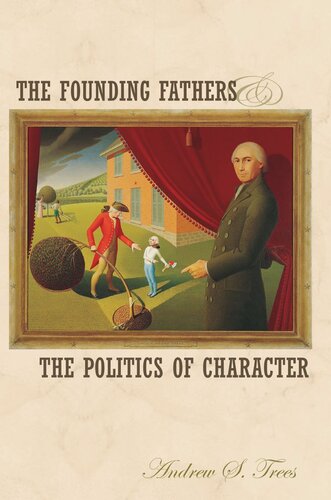

Most ebook files are in PDF format, so you can easily read them using various software such as Foxit Reader or directly on the Google Chrome browser.
Some ebook files are released by publishers in other formats such as .awz, .mobi, .epub, .fb2, etc. You may need to install specific software to read these formats on mobile/PC, such as Calibre.
Please read the tutorial at this link: https://ebookbell.com/faq
We offer FREE conversion to the popular formats you request; however, this may take some time. Therefore, right after payment, please email us, and we will try to provide the service as quickly as possible.
For some exceptional file formats or broken links (if any), please refrain from opening any disputes. Instead, email us first, and we will try to assist within a maximum of 6 hours.
EbookBell Team

5.0
70 reviewsThe American Revolution swept away old certainties and forced revolutionaries to consider what it meant to be American. Andrew Trees examines four attempts to answer the question of national identity that Americans faced in the wake of the Revolution. Through the writings of Thomas Jefferson, John Adams, Alexander Hamilton, and James Madison, Trees explores a complicated political world in which boundaries between the personal and the political were fluid and ill-defined. Melding history and literary study, he shows how this unsettled landscape challenged and sometimes confounded the founders' attempts to forge their own--and the nation's--identity.
Trees traces the intimately linked shaping of self and country by four men distrustful of politics and yet operating in an increasingly democratic world. Jefferson sought to recast the political along the lines of friendship, while Hamilton hoped that honor would provide a secure foundation for self and country. Adams struggled to create a nation virtuous enough to sustain a republican government, and Madison worked to establish a government based on justice.
Giving a new context to the founders' mission, Trees studies their contributions not simply as policy prescriptions but in terms of a more elusive and symbolic level of action. His work illuminates the tangled relationship among rhetoric, politics, self, and nation--as well as the larger question of national identity that remains with us today.